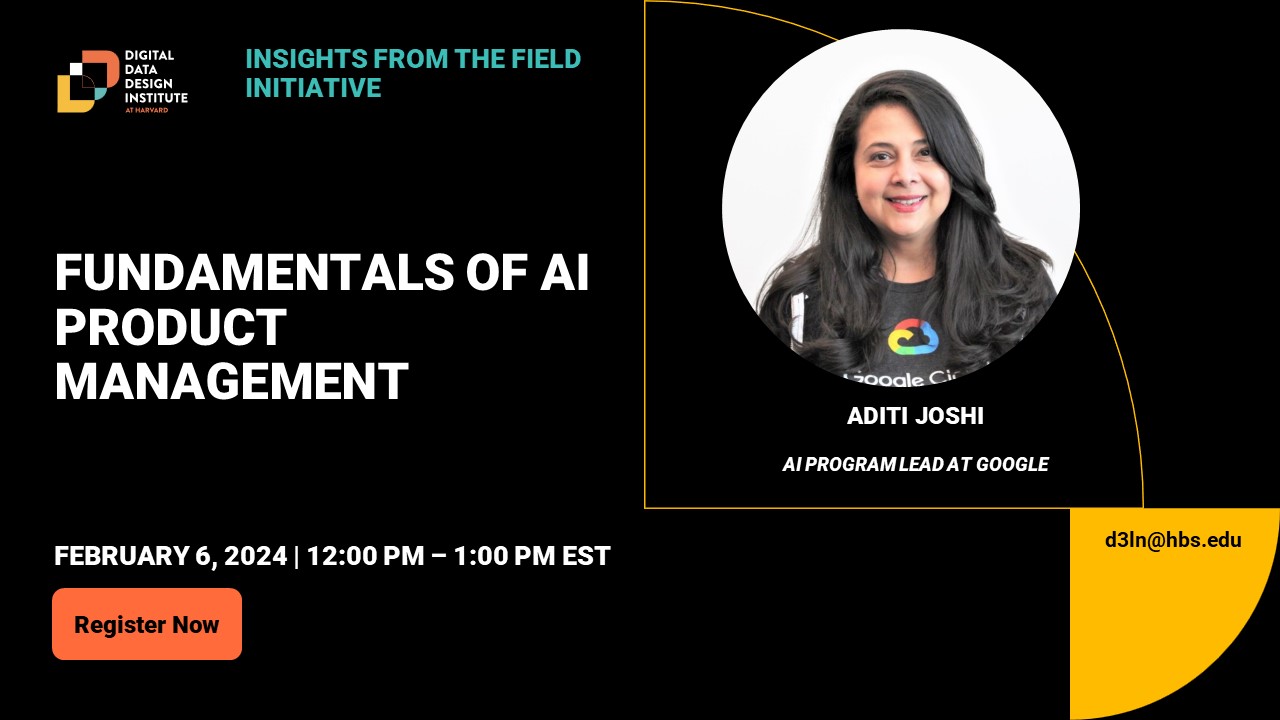New Operating Models and Business Models
The Digital Data Design Institute at Harvard invites individuals to embark on a journey into the future of business across industries and sectors. This collaborative effort bridges the intellectual chasm between academic research and industry practitioners to scrutinize innovative operating models and business models that are redefining traditional business paradigms that succeed in the age of AI and beyond. We delve into the intricate dynamics of digitalization, ecosystem-driven strategies, and platform-centric approaches that are shaping the contemporary business landscape. Together, we explore strategies and insights poised to empower organizations to excel in the ever-evolving world of commerce.

Fundamentals of AI Product Management: Concepts, Applications, and Opportunities

Revitalize, Reinvent, Reskill: Unlocking Workforce Productivity
On October 22-23, the Digital Reskilling Lab hosted the “Revitalize, Reinvent, Reskill: Unlocking Workforce Productivity” conference, a collaborative effort between the Digital Data Design Institute at Harvard and Managing the Future of Work at Harvard Business School. This event convened business leaders and reskilling practitioners to engage in discussions on reskilling methodologies and share cutting-edge […]

